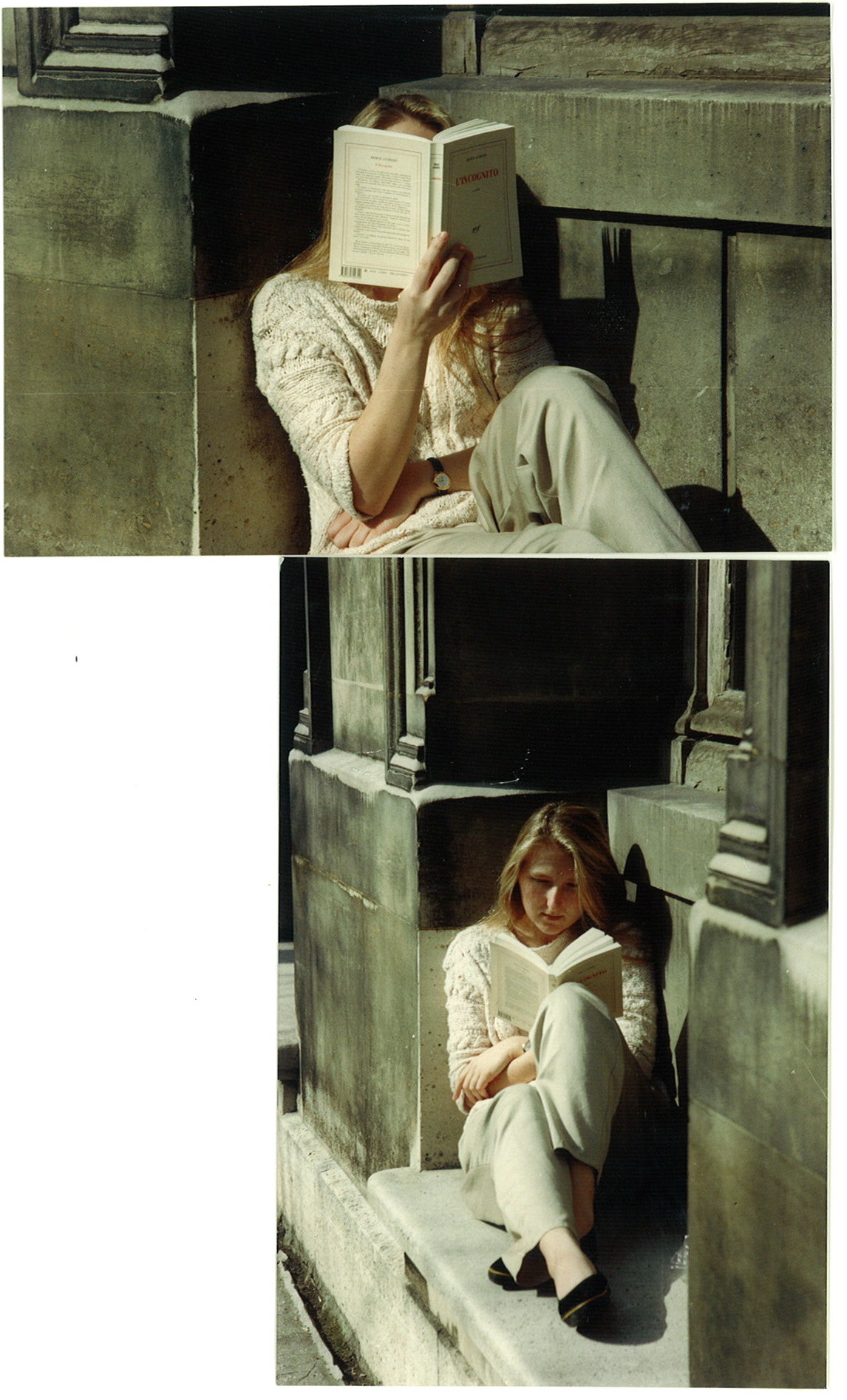Guibert’s Ghost
I would have liked to know Hervé Guibert. Or rather: I’d have just liked to lay eyes on him. Have a drink a few tables away from him. See him with mutual friends, hear him talk. He’d no doubt have intimidated me. He’d no doubt have irritated me, too. The guys who liked him lovingly said that he was cruel. I’m imagining this kind of French cruelty, of witticisms, of political incorrectness, this man who hated pity, charity. This one who preferred real friendship, never apologized, hated cowardice, betrayed like Genet, was intoxicated by freedom. That’s how I imagine him. Guibert. “Secrets have to circulate,” he wrote. That’s not the image of friendship I have in my head. That’s not exactly my idea of writing. But I see what he means. Some sort of devastating clarity. Declaring everything. The horror of cooped-up families, of rancid sex, of small shames. Guibert was enmeshed in beauty, in glimmering bitterness. In the harsh blankness. In the flush of desire. Yes, I’d have liked to lay eyes on him. He scared me a little. And I regret it, that it never happened, that it is now impossible, because for fifteen years now he has been dead. Paradise, his final book, is a masterpiece. I read it with a lump in my throat. A quick, urgent book, seamless and yet delicate, subtle, nuanced, filled with love.
I’d have liked to take the time to explain all that to my grandfather. Why my grandfather? It’s a strange story. My grandfather never read anything but one book which was his bible: Journey to the End of the Night. Not a bad choice. He suddenly, graciously took interest in my teenage reading habits. I threw out the name: “Guibert.” I wasn’t thinking. I was passionately within Guibert. So the old man wanted to know about me? He’d just have to read Guibert. My grandfather went to his neighborhood bookstore. He could have found Gangsters and Mauve the Virgin. The twenty books already written by Guibert. No. Of course the only book by Guibert this bookstore had was Phantoms Have Arisen in Me.
The title is from one of Sade’s letters in prison to his wife: “Owing to you phantoms have arisen in me which I shall have to render real.” I hummed this phrase in my head; it enchanted and terrified me. It doubtlessly would have been hard to publish such a book today. It’s an impressive, magnificent, unbearable book. I can only think of three or four books like that, books I have to set down when turning the pages to gulp for breath: Bret Easton Ellis’s American Psycho, Pavel Hak’s Sniper, Dennis Cooper’s The Sluts, Gabrielle Wittkop’s The Child-Trader. So my grandfather, in full innocence, began reading this story of “vile men” who keep little boys in bags, train them for battle, rape them, dismember them. Guibert’s novel is phantasms pushed to their limits, which words incarnate in the act of Writing. Which isn’t an act of killing. Which is precisely the opposite. My grandfather didn’t finish the book. He called to tell me that he didn’t understand me. I could tell from his voice that he was trying to stay calm. I loved him for that. And to the day of his death, we never managed to talk to each other again. Because of a book. A book by Guibert.
The performative power of literature. The divisive, silent power. Its Rousseauian evocativeness, its meaning, its style, its sentences’ strength–my grandfather saw none of that, or wanted to see none of that. He wasn’t prepared for that. He didn’t have the background for that. He was at the end of his life and explaining the book would have been impossible, explaining it as a teenager to an old man. I’d have liked to, anyway. A missed opportunity. A failure. But, with Guibert’s harshness, a long misunderstanding had begun. I went in other directions with the books I read, with the words I wrote. Into betrayal, far from family.
I’d have liked to tell Guibert all this. But what good would it have done? Often readers bore me, telling me their stories. A good reader is a mute reader. A reader who knows the difference between writing and speaking. But some letters, however. Particular sentences that touch you just so. I only wrote once to Guibert. I was twenty years old. A friend took a picture of me, an odd picture: my face was hidden behind the book I was reading, and this book was Incognito. I sent that photo, just that, without any explanation. I don’t know if it ever reached him. But today, as a writer, receiving such an envelope makes me uneasy: no matter how pleasant, I hate anonymous notes. Books attract crazy people. Certain books. No, I’d have liked to just drink a glass a few feet away from him. Hear him talk. Keep on reading him. I’d have liked for him not to have died.
Translated from the French by Jeffrey Zuckerman
This text first appeared in the magazine Senso, issue 29, winter 2007, in response to the prompt given to writers: "I would have liked..."
La traduction de ce texte a été publiée sur le site Internet de Tin House http://tinhouse.com/guiberts-ghost/
